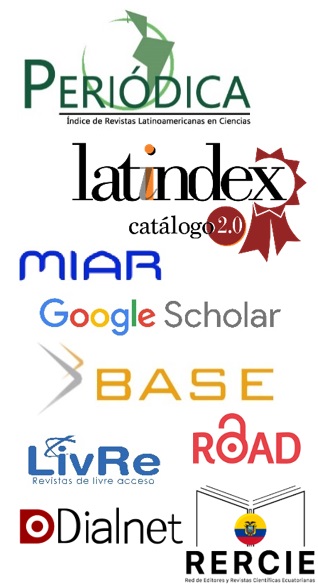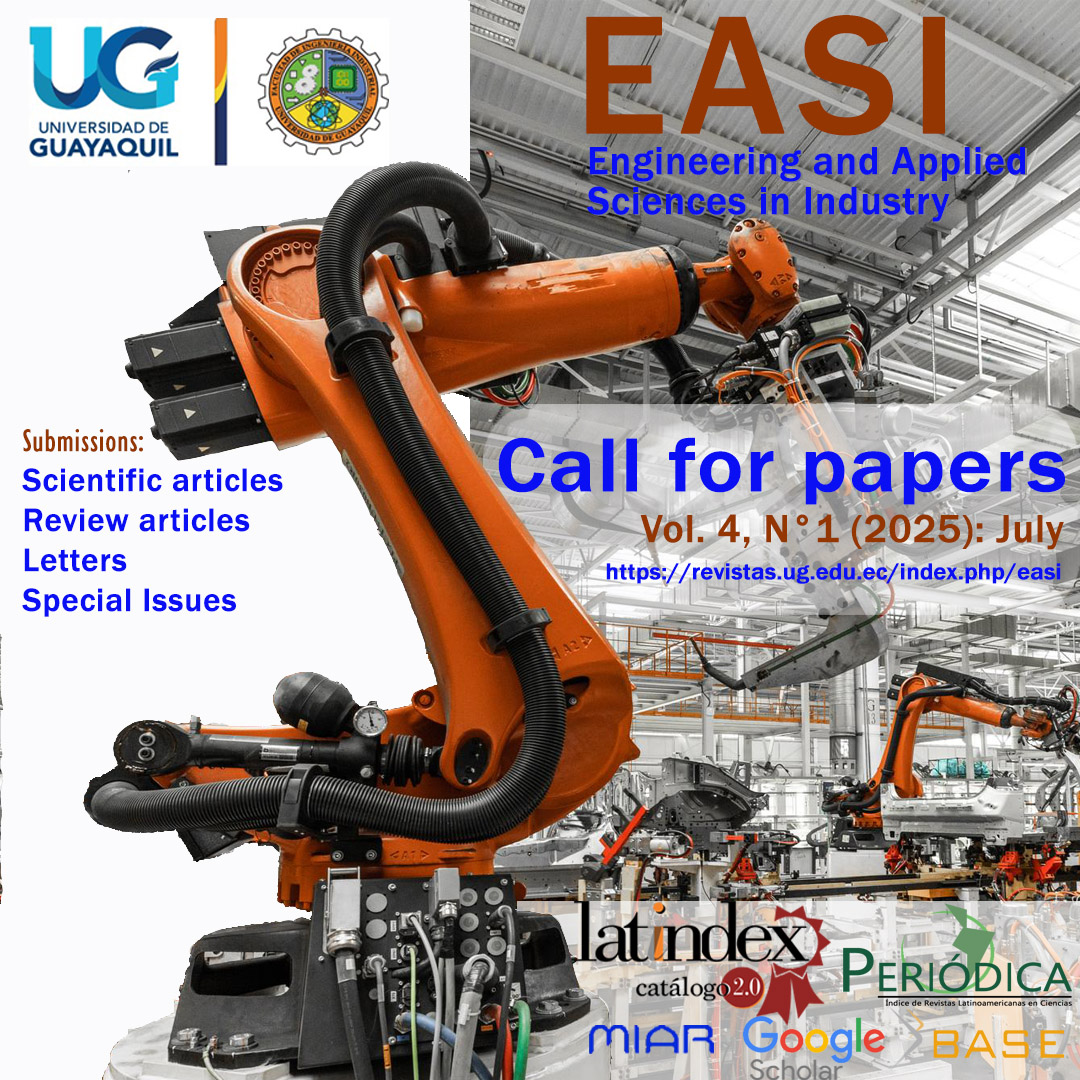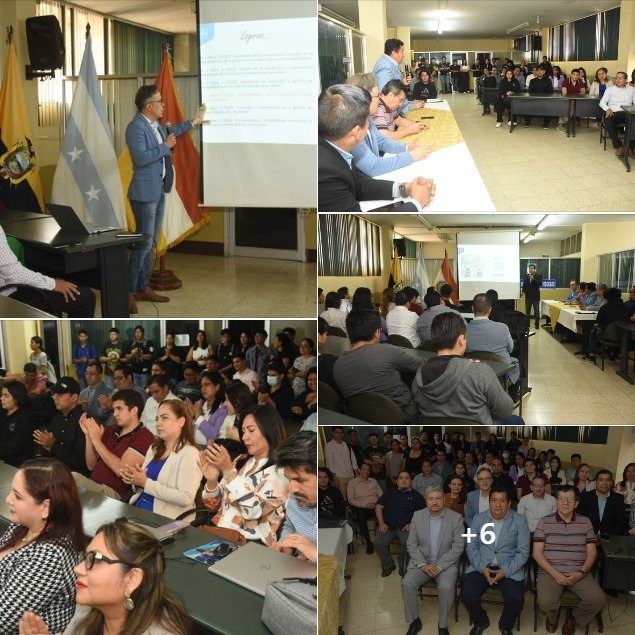Tecnología de votación con blockchain para un sistema electoral
DOI:
https://doi.org/10.53591/easi.v1i1.1771Palabras clave:
tecnología blockchain, sistema votación, procesos electorales, votos, criptografía.Resumen
Los procesos electorales en el mundo deben caracterizarse por la libertad de elegir a sus gobernantes, pero también por la integridad de la elección realizada por los ciudadanos, para así evitar el fraude; no obstante, en muchos países aún se realiza la votación manual, sin considerar las ventajas y beneficios de la tecnología. De esta forma, en este estudio se planteó como objetivo, analizar la tecnología Blockchain como una herramienta potencial para el desarrollo de una nueva forma de sufragio, adicionalmente se propone un mecanismo de aplicación de dicha tecnología, por la cual se espera cubrir con las expectativas de los votantes y los entes organizadores de las votaciones para proveer de una participación ciudadana segura que facilite los procesos y disminuya los costos gracias a la implementación de la tecnología Blockchain. Este sistema ayudará a la transparencia del proceso, pero cuidando la privacidad y su validez. Los resultados no podrán ser falsificados y la velocidad de recuento aumentaría. Los votantes podrán acceder a su participación ciudadana mediante un código único logrando que su voto se registre y sea inmutable.
Citas
Afzal, M., Li, J., Amin, W., Huang, Q., Umer, K., Ahmad, S. A., Ahmad, F., & Raza, A. (2022). Role of blockchain technology in transactive energy market: A review. Sustainable Energy Technologies and Assessments, 53, 102646. https://doi.org/10.1016/j.seta.2022.102646
Alvi, S. T., Uddin, M. N., Islam, L., & Ahamed, S. (2022). DVTChain: A blockchain-based decentralized mechanism to ensure the security of digital voting system voting system. Journal of King Saud University - Computer and Information Sciences. https://doi.org/10.1016/j.jksuci.2022.06.014
Baudier, P., Kondrateva, G., Ammi, C., & Seulliet, E. (2021). Peace engineering: The contribution of blockchain systems to the e-voting process. Technological Forecasting and Social Change, 162. https://doi.org/10.1016/j.techfore.2020.120397
Dhulavvagol, P. M., Bhajantri, V. H., & Totad, S. G. (2020). Blockchain Ethereum Clients Performance Analysis Considering E-Voting Application. Procedia Computer Science, 167, 2506–2515. https://doi.org/10.1016/j.procs.2020.03.303
Dimitriou, T. (2020). Efficient, Coercion-free and Universally Verifiable Blockchain-based Voting. Computer Networks, 174. https://doi.org/10.1016/j.comnet.2020.107234
Guo, H., & Yu, X. (2022). A survey on blockchain technology and its security. Blockchain: Research and Applications, 3(2). https://doi.org/10.1016/j.bcra.2022.100067
Gupta, S., Gupta, A., Pandya, I. Y., Bhatt, A., & Mehta, K. (2022). End to end secure e-voting using blockchain & quantum key distribution. Materials Today: Proceedings. https://doi.org/10.1016/j.matpr.2021.07.254
Khan, K. M., Arshad, J., & Khan, M. M. (2020a). Investigating performance constraints for blockchain based secure e-voting system. Future Generation Computer Systems, 105, 13–26. https://doi.org/10.1016/j.future.2019.11.005
Khan, K. M., Arshad, J., & Khan, M. M. (2020b). Simulation of transaction malleability attack for blockchain-based e-Voting. Computers and Electrical Engineering, 83. https://doi.org/10.1016/j.compeleceng.2020.106583
Khan, K. M., Arshad, J., & Khan, M. M. (2021). Empirical analysis of transaction malleability within blockchain-based e-Voting. Computers and Security, 100. https://doi.org/10.1016/j.cose.2020.102081
Liao, Z., & Cheng, S. (2023). RVC: A reputation and voting based blockchain consensus mechanism for edge computing-enabled IoT systems. Journal of Network and Computer Applications, 209, 103510. https://doi.org/10.1016/J.JNCA.2022.103510
Liu, Y., & Xu, G. (2021). Fixed degree of decentralization DPoS consensus mechanism in blockchain based on adjacency vote and the average fuzziness of vague value. Computer Networks, 199. https://doi.org/10.1016/j.comnet.2021.108432
Merlo, V., Pio, G., Giusto, F., & Bilancia, M. (2022). On the exploitation of the blockchain technology in the healthcare sector: A systematic review. Expert Systems with Applications, 118897. https://doi.org/10.1016/j.eswa.2022.118897
Mookherji, S., Vanga, O., & Prasath, R. (2022). Blockchain-based e-voting protocols. Blockchain Technology for Emerging Applications: A Comprehensive Approach, 239–266. https://doi.org/10.1016/B978-0-323-90193-2.00006-5
Mosley, L., Pham, H., Guo, X., Bansal, Y., Hare, E., & Antony, N. (2022). Towards a systematic understanding of blockchain governance in proposal voting: A dash case study. Blockchain: Research and Applications, 3(3). https://doi.org/10.1016/j.bcra.2022.100085
Ooi, V., Kian Peng, S., & Soh, J. (2022). Blockchain land transfers: Technology, promises, and perils. Computer Law and Security Review, 45. https://doi.org/10.1016/j.clsr.2022.105672
Panja, S., & Roy, B. (2021). A secure end-to-end verifiable e-voting system using blockchain and cloud server. Journal of Information Security and Applications, 59. https://doi.org/10.1016/j.jisa.2021.102815
Pawlak, M., & Poniszewska-Marańda, A. (2021). Trends in blockchain-based electronic voting systems. Information Processing and Management, 58(4). https://doi.org/10.1016/j.ipm.2021.102595
Pawlak, M., Poniszewska-Maránda, A., & Kryvinska, N. (2018). Towards the intelligent agents for blockchain e-voting system. Procedia Computer Science, 141, 239–246. https://doi.org/10.1016/j.procs.2018.10.177
Rahman, M. S., Chamikara, M. A. P., Khalil, I., & Bouras, A. (2022). Blockchain-of-blockchains: An interoperable blockchain platform for ensuring IoT data integrity in smart city. Journal of Industrial Information Integration, 30, 100408. https://doi.org/10.1016/J.JII.2022.100408
Rajasekaran, A. S., Azees, M., & Al-Turjman, F. (2022). A comprehensive survey on blockchain technology. Sustainable Energy Technologies and Assessments, 52. https://doi.org/10.1016/j.seta.2022.102039
Xu, Y., Tao, X., Das, M., Kwok, H. H. L., Liu, H., Wang, G., & Cheng, J. C. P. (2023). Suitability analysis of consensus protocols for blockchain-based applications in the construction industry. Automation in Construction, 145, 104638. https://doi.org/10.1016/J.AUTCON.2022.104638
Yang, X., Yi, X., Nepal, S., Kelarev, A., & Han, F. (2020). Blockchain voting: Publicly verifiable online voting protocol without trusted tallying authorities. Future Generation Computer Systems, 112, 859–874. https://doi.org/10.1016/j.future.2020.06.051
Yu, F., Lin, H., Wang, X., Yassine, A., & Hossain, M. S. (2022). Blockchain-empowered secure federated learning system: Architecture and applications. Computer Communications. https://doi.org/10.1016/j.comcom.2022.09.008
Zheng, K., Zheng, L. J., Gauthier, J., Zhou, L., Xu, Y., Behl, A., & Zhang, J. Z. (2022). Blockchain technology for enterprise credit information sharing in supply chain finance. Journal of Innovation and Knowledge, 7(4). https://doi.org/10.1016/j.jik.2022.100256
Publicado
Cómo citar
Número
Sección
Licencia
Derechos de autor 2022 José Quinto Martínez, Luis Pilay Salvatierra Pilay Salvatierra, Segundo Echeverria Desiderio

Esta obra está bajo una licencia internacional Creative Commons Atribución-NoComercial-SinDerivadas 4.0.
Las contribuciones publicadas en la revista EASI se rigen por la licencia de acceso abierto CC BY-NC-ND 4.0 (Creative Commons Reconocimiento-NoComercial-SinDerivadas 4.0). Esta licencia te empodera como autor, y garantiza la amplia difusión de tu investigación mientras protege tus derechos.
Para autores:
- Los autores pueden reproducir y distribuir la obra en cualquier formato no comercial, siempre que la obra indique los autores y datos de la revista EASI, y no contravenga los puntos mencionados en el apartado de los permisos y prácticas editoriales.
- La revista obtiene una licencia para publicar y distribuir el manuscrito original.
Para lectores/usuarios:
Acceso y distribución gratuita: cualquier lector o usuario puede acceder, descargar, copiar, imprimir y compartir el artículo publicado libremente según los términos de la licencia CC BY-NC-ND 4.0.
Reconocimiento obligatorio: si un tercero utiliza el material publicado, debe dar crédito al creador proporcionando el nombre, el título del artículo y el nombre de la revista, lo que garantiza la propiedad intelectual del autor(es) y ayuda a construir su reputación académica.
Uso no comercial: solo se permite el uso no comercial del trabajo publicado. No comercial significa que no está destinado principalmente ni dirigido al aprovechamiento comercial o la compensación monetaria por parte de ningún tercero.
No se permiten modificaciones: el contenido del artículo publicado no se puede cambiar, mezclar o reconstruir a partir del trabajo del autor. Esto asegura la integridad y precisión de los resultados de la investigación.




